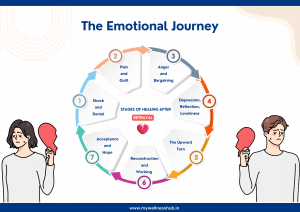What Makes the Brother-Sister Relationship So Special? | Sibling Relations
By Prapoorna M
Last Updated: November 26, 2021
Introduction
The bond shared between a brother and sister is one of life’s most unique and profound relationships. It’s a blend of deep-rooted love, shared experiences, and, at times, even comical irritations. This special bond, often established from the earliest days of childhood, typically becomes one of the longest and most significant relationships in a person’s life. The brother-sister dynamic is an intricate tapestry woven with emotions and memories, influencing our personalities, choices, and even our sense of belonging.
For those looking to understand more about the emotional and psychological development in children, our detailed guide on speech and language milestones offers valuable insights.
The Love-Hate Dynamic
The brother-sister relationship is characterized by a fascinating mix of emotions – a love-hate dynamic that shapes both individuals. This bond is marked by moments of shared laughter and support, interspersed with bouts of playful irritation and rivalry. Imagine a typical Sunday morning; the living room becomes a battleground over who gets control of the TV remote, a scenario familiar in households worldwide. Yet, this rivalry is often short-lived. In tougher times, siblings stand as pillars of support for one another, setting aside trivial disagreements to offer comfort and guidance.
Such relationships, with their ups and downs, play a pivotal role in our emotional development. They teach us about compromise, understanding, and the unspoken bond of love that underpins even the most heated arguments over trivial matters. It’s these everyday interactions, whether it’s fighting over a piece of cake or teaming up to plan a surprise family event, that cement the bond between a brother and sister, making it an unparalleled connection.
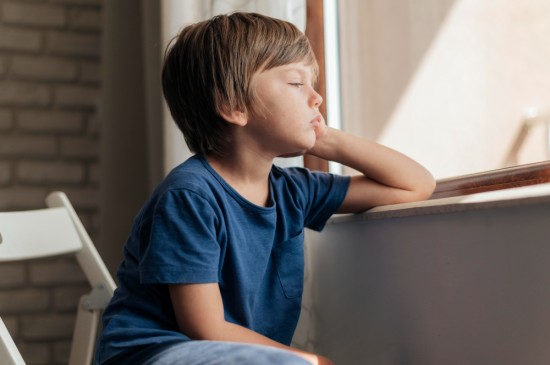
In the journey of nurturing these relationships, it’s essential to focus on emotional and mental well-being. While we often manage these bonds intuitively, understanding their impact on our overall wellness can be enlightening. For those seeking deeper insights into family dynamics and emotional health, resources like Wellness Hub offer valuable guidance and support, helping to strengthen these vital connections in our lives.
Developmental Impacts of Sibling Relationships
The influence of sibling relationships on a person’s development is profound and multi-faceted. These bonds play a crucial role in shaping social skills and emotional intelligence. Research has consistently shown that interactions between siblings significantly impact an individual’s capacity for empathy, cooperation, and negotiation. For instance, siblings often learn to read each other’s emotions and respond accordingly, a skill that translates into heightened emotional intelligence in other areas of life.
Additionally, the sibling dynamic is a training ground for developing effective communication skills. From a young age, brothers and sisters learn to negotiate, share, and resolve conflicts, albeit sometimes amidst tears and laughter. These experiences are invaluable in building a foundation for healthy interpersonal relationships later in life.
Navigating the Challenges
Despite the benefits, sibling relationships can also present challenges such as jealousy, competition, and clashing personalities. It’s not uncommon for siblings to vie for parental attention or excel in different areas, leading to rivalry. To manage these conflicts, it’s important to foster an environment where open communication is encouraged. Parents and caregivers can play a pivotal role by acknowledging each child’s unique talents and needs, thus reducing feelings of competition.
Encouraging siblings to engage in joint activities where they can cooperate and appreciate each other’s strengths can also be beneficial. It’s essential to recognize and validate each child’s feelings to prevent resentment from brewing. In families seeking to navigate these complexities, resources like Wellness Hub can offer guidance on fostering harmonious sibling relationships and addressing any underlying issues.
To delve deeper into managing and understanding children’s emotions, our article on jealousy and envy in kids could be an invaluable resource.
Common Sibling Challenges and Solutions
| Challenge | Solution |
|---|---|
| Jealousy and Competition | Encourage parents to give fair attention to each child. Highlight and celebrate each sibling’s unique strengths and accomplishments to foster a sense of individual value and reduce competition. |
| Age Gap Misunderstandings | Plan family activities that are inclusive and enjoyable for all ages. This helps bridge the gap and fosters understanding and bonding among siblings with significant age differences. |
| Different Interests and Personalities | Encourage respect for each sibling’s individuality. Create an environment where diverse interests are valued. Promote activities where siblings can learn from each other’s hobbies and personalities, thereby enhancing mutual understanding and acceptance. |
For parents who are navigating sibling dynamics along with educational challenges, our insights on how to control test anxiety in children might be helpful.
In conclusion, while sibling relationships can be complex, they are also incredibly enriching. By understanding and addressing the challenges while nurturing the positive aspects, siblings can enjoy a bond that significantly contributes to their social and emotional growth.
Cultural Perspectives and Celebrations
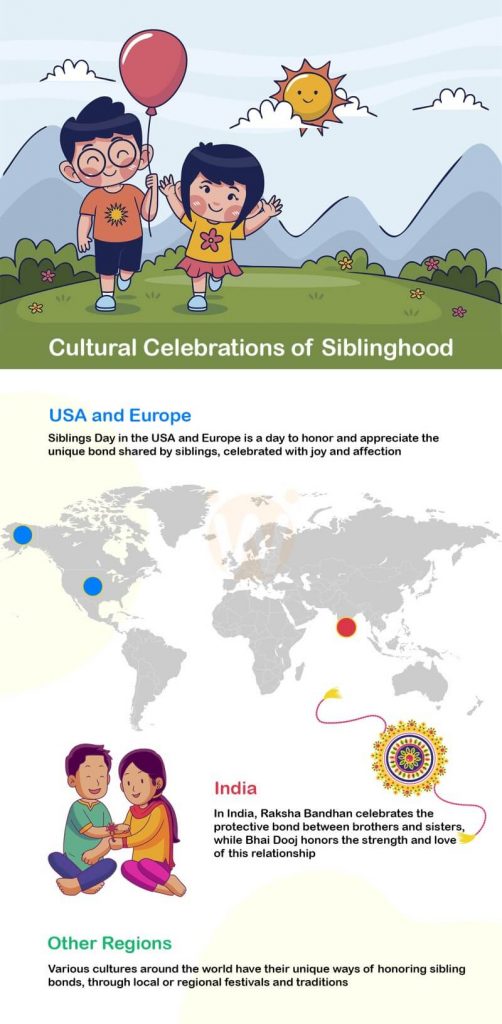
The brother-sister bond is celebrated and revered across various cultures, with Indian traditions particularly highlighting this unique relationship. Festivals like Raksha Bandhan and Bhai Dooj stand as testaments to the importance of this bond in Indian culture. Raksha Bandhan, a festival where sisters tie a rakhi (a sacred thread) on their brothers’ wrists, symbolizes a brother’s duty to protect his sister and the sister’s blessings for her brother. Bhai Dooj, another significant celebration, involves sisters performing aarti for their brothers and praying for their long life and prosperity. These festivals not only reinforce the bond between siblings but also serve as a reminder of their duties and affection towards each other.
Such cultural celebrations highlight the deep-rooted values and emotional connections inherent in sibling relationships. They underscore the importance of family bonds, a theme central to many Indian festivities and one that resonates globally.
Sibling Roles and Dynamics
From childhood through adulthood, the roles and dynamics within sibling relationships continually evolve. In their early years, siblings often assume the roles of playmates and co-conspirators, learning and growing together. As they mature, these roles often develop into those of protectors, supporters, and confidants. Elder siblings may take on a quasi-parental role, offering guidance and support to younger siblings, while younger siblings can provide fresh perspectives and companionship.
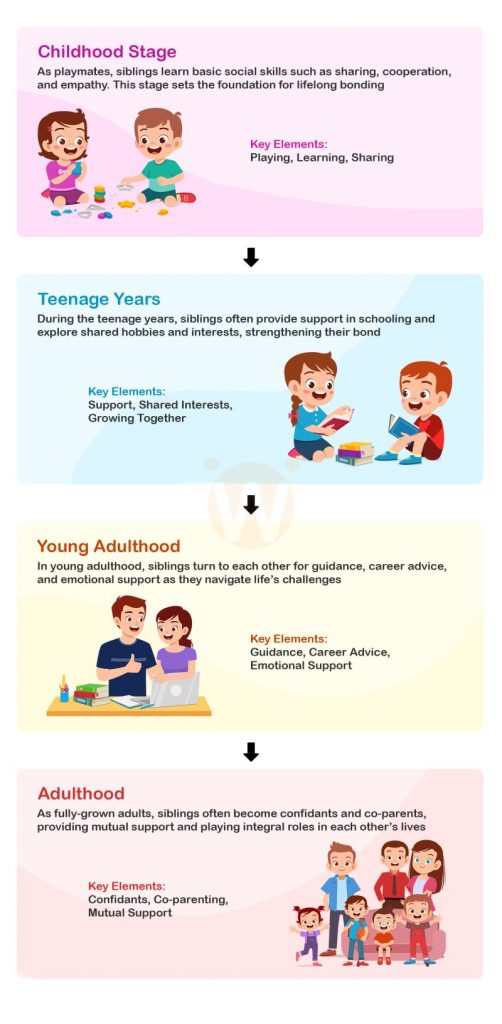
The beauty of these dynamics lies in their fluidity – a brother who once needed guidance can become a pillar of support, while a sister who once offered comfort can later seek it. These roles contribute significantly to each individual’s emotional and social development, shaping their understanding of relationships and empathy.
For those seeking deeper insights into these dynamics and their impact on wellness, resources like Wellness Hub can be invaluable. Offering advice and support, Wellness Hub helps individuals and families navigate the complexities of sibling relationships, ensuring these bonds remain a source of strength and comfort throughout life.
Interested in understanding more about family dynamics and relationships? Our article on the special bond in a mother-daughter relationship offers further insights.
The Unbreakable Bond
The brother-sister relationship is often an unbreakable bond, enduring through life’s many changes and distances. This unique connection is beautifully captured in the words of Vietnamese Zen monk Thich Nhat Hanh: “Brothers and sisters are as close as hands and feet.” Despite the geographical distances or the inevitable transformations that life brings, this bond remains steadfast, often growing stronger with time. Stories abound of siblings reuniting after years apart, only to find their connection as vibrant as ever, a testament to the enduring nature of their relationship.
Wellness and Mental Health Aspects
The positive impact of healthy sibling relationships on mental health and emotional well-being cannot be overstated. These bonds provide a sense of belonging and understanding, significantly contributing to our emotional resilience. The shared laughter, the mutual support during tough times, and even the playful bickering all play a part in shaping our emotional landscape.
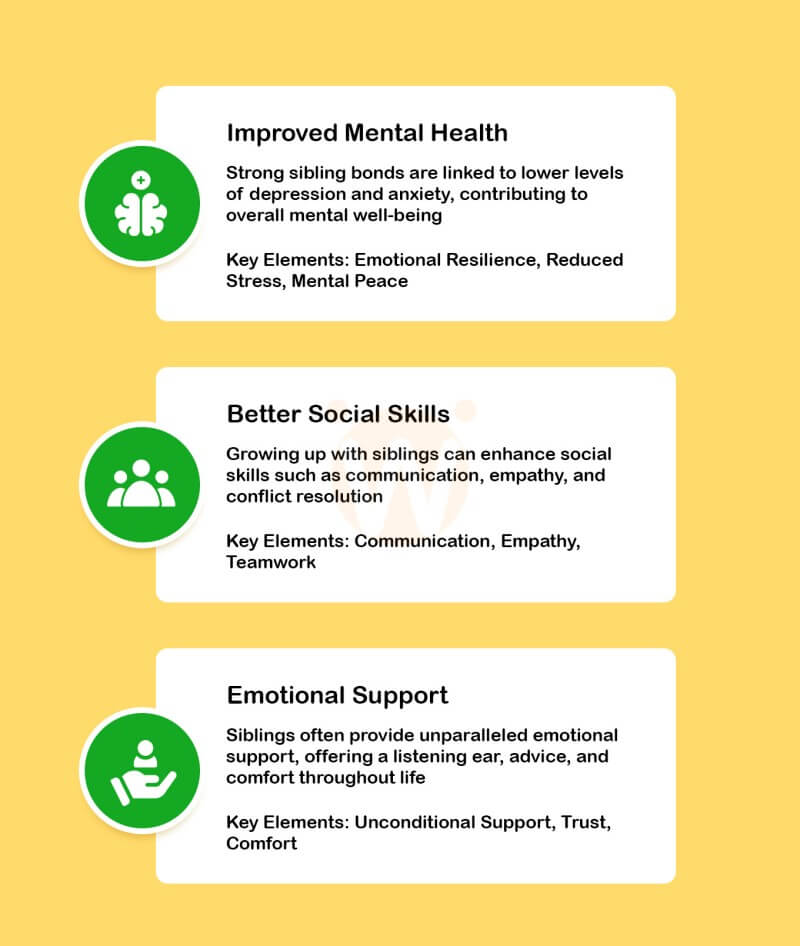
For individuals looking to explore and improve these aspects of their lives, Wellness Hub stands as a valuable resource. Offering guidance and support, Wellness Hub aids in nurturing these essential family relationships, ensuring they continue to be a source of strength and comfort.
For those looking for support in mental health and counseling, our services in online counseling could be a beneficial resource.
Conclusion
In conclusion, the brother-sister relationship is a mosaic of love, support, learning, and growth. From the playful squabbles of childhood to the profound bonds of adulthood, these relationships shape our lives in countless ways. As we navigate through different stages of life, the constancy of a sibling’s presence can be a source of great comfort and joy.
We encourage our readers to cherish and nurture these relationships. Whether through celebrating cultural traditions, acknowledging and working through challenges, or simply enjoying the everyday moments of togetherness, the brother-sister bond is one to be treasured. In doing so, we not only enrich our own lives but also contribute to our overall mental and emotional well-being.
Explore the complexities of relationships further in our detailed article on relationship counseling
Frequently Asked Questions on Brother-Sister Relationships
1. What makes the brother-sister relationship unique?
The brother-sister relationship is unique due to its blend of deep affection, shared history, and the natural evolution from rivalry in childhood to support and understanding in adulthood.
2. How do cultural celebrations like Raksha Bandhan and Bhai Dooj emphasize the importance of sibling relationships?
These festivals highlight the respect, protection, and lifelong support expected in sibling relationships, reinforcing the cultural values of family and togetherness.
3. Can sibling relationships impact mental health?
Yes, healthy brother-sister relationship can greatly contribute to emotional well-being, providing a sense of belonging, support, and understanding.
4. How can siblings maintain a strong bond despite geographical distance?
Regular communication, shared experiences, and making an effort to stay involved in each other’s lives help maintain a strong bond, regardless of distance.
5. What are some common challenges in sibling relationships?
Jealousy, competition, and differing personalities are common challenges. Open communication and mutual respect are key to navigating these issues.
6. How can parents foster strong sibling bonds among their children?
Parents can encourage cooperative activities, acknowledge each child’s unique contributions, and model respectful and loving behavior.
7. Are there resources available for improving sibling relationships?
Yes, resources like Wellness Hub offer guidance and support for strengthening family relationships and addressing any underlying issues.
8. How do sibling roles evolve from childhood to adulthood?
Sibling roles evolve from playmates and co-conspirators in childhood to supporters, protectors, and confidants in adulthood, reflecting the growth and maturation of the relationship.
9. Can siblings who didn’t get along in childhood develop a strong relationship later in life?
Absolutely. Many siblings find that as they mature, they are able to move past childhood conflicts and build a strong, supportive relationship.
10. What role do shared memories play in sibling relationships?
Shared memories, both good and bad, form the foundation of the sibling bond, fostering a unique connection that lasts a lifetime.
Book your Free Consultation Today
Parent/Caregiver Info:
Client’s Details:
* Error Message






